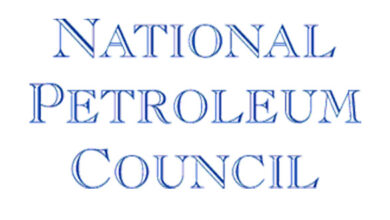IADC presses ahead on workforce development and training, advocacy
IADC and its members drive the industry forward through continuous accreditation updates, by giving voice to member interests around the world, and creating forums for communication, collaboration
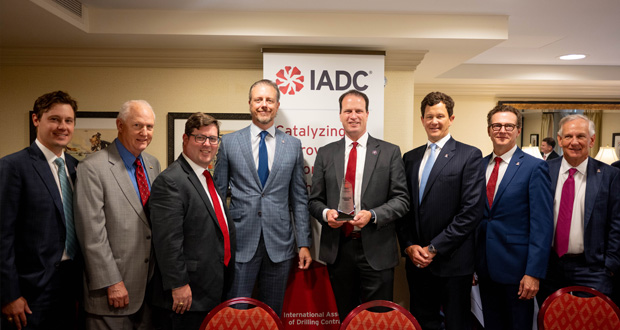
By Katie Carr, Senior Coordinator – External Communications
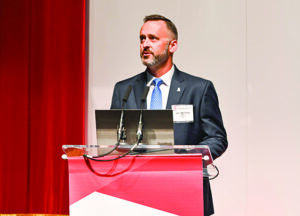
Accreditation & Credentialing
IADC’s accreditation programs have a global reputation for ensuring quality assurance, consistency and standardization in training and competence for the drilling industry. These programs are developed and maintained by IADC members working through technical committees and advisory panels.
In the spring, the IADC Accreditation & Credentialing Division achieved the 17th straight year of ISO 9001:2015 certification and the eighth consecutive year with zero audit findings. IADC is the only accrediting body in the drilling industry to hold this certification.
After a year of development, the IADC H2S Safe training standard was launched in August to meet the need for a drilling industry-specific H2S training standard. IADC H2S Safe is geared toward individuals who have the potential to be exposed to H2S or an H2S environment.
IADC’s accreditation programs are continuously reviewed, revised and updated throughout the year, ensuring they are evergreen and aligned with the industry’s needs. This year, IADC and its members undertook multiple initiatives to update and maintain IADC’s accreditation programs. Updates for the WellSharp accreditation program included:
- A simulator assessment review and revision were completed, as well as virtual simulator use recommendations.
- A workgroup is defining an alternative pathway to well control certification that incorporates a blended learning strategy utilizing in-person and virtual lessons, combined with the use of continuous learning throughout the two-year certification cycle.
- Revision of well servicing courses is under way to further align them with the latest industry standards and recommendations, as well as to reduce focus on equipment and increase focus on pressure control.
- The first phase of a comprehensive review of the Drilling Operations Driller and Supervisor level WellSharp exams was completed and implemented.
- New proctoring vendors and services were chosen for WellSharp Live.
Additionally, the WellSharp Advisory Panel continued to discuss options for IADC KREW – Knowledge Retention and Education for Our Workforce. A workgroup is considering new recommendations, such as allowing individuals to take continuous learning throughout the standard two-year period as an alternative pathway to recertification.
For the IADC Subsea Technician Competency Assessment Program, a member workgroup has reviewed all assessment questions based on data collected over the past year, and the workgroup’s edits are now incorporated into the program. The next phase of work will involve the development of a guidance document and study materials to help individuals prepare for assessments.
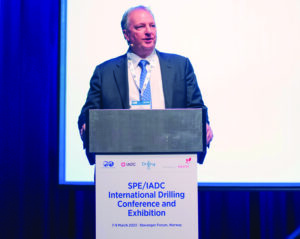
Government and Industry Affairs
IADC advocates on behalf of the drilling industry by proactively engaging with and serving as an educative resource to regulatory and legislative bodies. The Government and Industry Affairs (GIA) team works closely with industry stakeholders and regulators to advocate for enhanced regulation and best practices, as well as fair and sensible policy and legislation. Through the Washington, DC, section of IADC’s newsletter, DrillBits, it also informs IADC members of US exploration and development matters as they affect local, regional and/or international objectives.
In April, Joe Lillis joined the GIA team as Vice President of Policy to spearhead legislative advocacy efforts in Washington, DC. In September, IADC hosted a congressional “fly-in” with representatives from 11 IADC member companies. This provided an opportunity for those members to engage in substantive discussions with members of Congress concerning the government’s energy strategy.
IADC also continues to represent drilling contractors through attendance and participation in a variety of meetings and events. The GIA team routinely engages in panel discussions and subject matter presentations, and facilitates inter-association coordination of upstream industry concerns. Examples from this year include IADC’s upstream Cybersecurity Guidelines revision; development of an industry supply chain sustainability/ESG posture; and the enhancement of state and federal regulator technical support for the deployment of emerging technologies and processes.
Throughout 2023, IADC’s GIA team has directed considerable focus on its engagement with other upstream trade associations. Such work includes collaboration with the American Petroleum Institute and the Onshore Safety Alliance to provide insight to OSHA on the industry’s leading indicators. IADC joined several trade association alliances to provide collective comment on a number of regulatory initiatives. Further, the GIA team continued to advocate for reasonable and pragmatic measures to enhance industry safety; examples range from newly proposed well control regulations to proposed mandates that would constrain offshore manning. Another example is IADC’s recent meeting with the Deputy Secretary of the US Department of the Interior to express concerns for the need to develop the next “Five-Year Offshore Oil and Gas Leasing Plan” in a strategic manner that provides economic certainty in the global energy space.
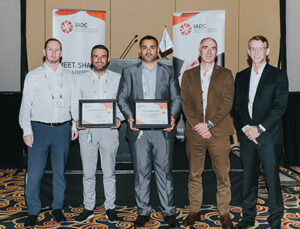
celebrated its 25th anniversary this year.
International Development
IADC’s International Development department represents the best interests of IADC members around the world. These efforts can be attributed, in large part, to the extensive network of regional representatives and chapters based in Europe, the UK, Brazil, Latin America, the Middle East, Africa, Asia Pacific and Australasia.
These regional representatives serve as local touchpoints, advocating for members in their regions and fostering collaboration. The 10 regional IADC chapters outside the US operate autonomously, relying on the participation of member volunteers.
One important aspect of IADC’s International Development efforts is advocacy for the global drilling community at the regional level. This year, there was a continued focus on MODU cabotage provisions that could adversely affect drilling contractors in Mexico, India and Saudi Arabia. IADC collaborated with regional chapters to monitor these issues closely, write letters to regulatory bodies and participate in discussions with relevant stakeholders and officials.
IADC also provides a unified voice for its members by establishing and maintaining professional relationships, as well as participating in joint industry projects and initiatives. For example, IADC and fellow trade associations continued an ongoing project addressing oil spill prevention, preparedness and response in the wider Caribbean region. IADC was also involved in a Trade Association Support Group initiative that developed and delivered an offshore workshop sharing informational curricula on offshore safety and other matters to industry and government stakeholders engaged in work on Suriname’s Outer Continental Shelf. Additionally, the association attended meetings held by relevant regulatory bodies, including the International Maritime Organization, International Regulators’ Forum and International Association of Oil & Gas Producers.
Regional chapters also provide great opportunities for local members to connect through networking events, professional development opportunities and targeted efforts to address regional challenges. Many of these chapters have deep historical roots and robust member participation. This year, the Southern Arabian Peninsula Chapter and the South Central Asia Chapter both celebrated 25th anniversaries, and the North Sea Chapter celebrated its 50th anniversary.
Throughout 2023, the North Sea Chapter worked on an initiative to address the current state of mental health in the energy industry. The chapter published a 15-page white paper on the subject; hosted a “Mental Health in Energy” workshop in April offering a panel discussion and interactive table sessions; and created an inclusive industrywide mental health and wellbeing charter. Additionally, the two young professionals’ subcommittees that were formed last year under the South Central Asia and Australasia Chapters hosted meetings to collaborate with other associations and send young professionals on their first rig visits.
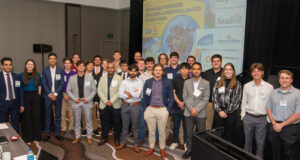
Student Chapters
IADC’s Student Chapter program began in 2017 with the aim of actively engaging with the next generation. This program provides students with opportunities to participate in the industry and start building their professional networks before they graduate from college. This year, Student Chapters at the Universiti Teknologi Petronas (UTP) in Malaysia and the Petroleum Training Institute in Nigeria were established. With these additions, IADC Student Chapters are now present at 16 universities and higher learning institutions around the world.
Through this program, students can supplement their academic pursuits with real-world industry exposure and networking opportunities. For example, in January, 14 students from the IADC Student Chapters at Texas A&M University, the University of Louisiana at Lafayette (ULL) and the University of Texas at Austin got the chance to tour a Patterson-UTI rig. Chapters at the University of Wyoming and ULL provided WellSharp well control training to their members. The Student Chapters at the Maharashtra Institute of Technology (MIT) and the Pandit Deendayal Energy University (PDEU) in India have collaborated to host a series of webinars on topics such as “Offshore Drilling 101” and “Reservoir Engineering.” In Saudi Arabia, the Student Chapter at the King Fahd University of Petroleum and Minerals (KFUPM) hosted an executive from Arabian Rig Manufacturing to discuss the company’s work and provide industry insights.
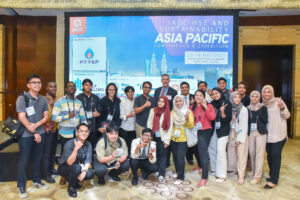
IADC’s industry conferences are a great forum for networking and learning. As of October, the association has sponsored at least 75 students to attend these conferences this year; that number is expected to reach 140 by year-end. Not only can students benefit from attending these events, but industry professionals can also benefit by directly engaging with the students to better understand their perspectives.
A group of students from the UTP Student Chapter attended the 2023 IADC HSE & Sustainability Asia Pacific Conference in Kuala Lumpur, Malaysia, in May. Two of the students participated in panels discussing “Workforce Attraction & Development” and “ESG & Sustainability.” Six delegates from the MIT and PDEU Student Chapters attended India Energy Week in Bangalore, India, in February. In May, students from the University of North Dakota traveled to Houston for the IADC Drilling Onshore Conference.
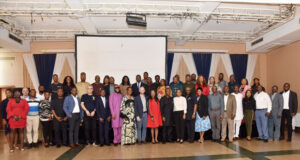
Committees
Much of what is accomplished at IADC is done at the committee and workgroup level. Committees provide a forum for members to collaborate and take action toward industry-driven initiatives. IADC has 16 committees, each with a specific area of focus.
Many of IADC’s committees put time, energy and effort into creating impactful resources for members.
- For the past year, a workgroup under the Health, Safety, Environment & Training (HSET) Committee has been developing IADC’s new H2S Safe training standard, which was launched in August. The Incident Statistics Program (ISP) Subcommittee, also operating under the HSET Committee, is developing a revamped ISP system featuring an online portal. The new system, set to be launched in early 2024, will streamline the process of entering and accessing data for all parties involved.
- The Gas in the Riser Subcommittee of the Underbalanced Operations and Managed Pressure Drilling Committee released the “Riser Gas Handling Guidelines,” which can be purchased as a stand-alone chapter of the IADC Drilling Manual through the IADC Bookstore (Click here for more details). These guidelines address the challenges associated with gas in the riser in deepwater rigs utilizing surface backpressure managed pressure drilling or installed riser gas handling systems.
- This year, the Technical Publications Committee produced two new episodes of the “DrillingIn Book Review” video series. The new episodes feature interviews with Mark S. Ramsay on his book, “Practical Wellbore Hydraulics and Hole Cleaning,” and with Samuel Bridges on the book he co-authored with Leon Robinson, “A Practical Handbook for Drilling Fluids Processing.”
- The Drilling Engineers Committee hosted four hybrid tech forums throughout the year focusing on: “Why We Do What We Do,” “Safety Technologies & Systems,” “How Do We Design & Drill Better Wells – Today and Tomorrow?” and “Drilling’s Role in CCUS and Geothermal.”
- The Young Professionals (YP) Committee introduced a series of live professional development webinars. During these events, industry experts discussed their experiences with “Developing Your Personal Brand” and “Negotiations.” The YP Committee also organized networking opportunities, including three “Luncheon with Leaders.” In addition, the committee co-hosted a social gathering with the American Association of Drilling Engineers and invited members to attend a Space Cowboys networking event.
- The Advanced Rig Technology Committee had two major ongoing projects this year, one regarding bit dull grading and the other regarding emissions reduction. The committee also organized the IADC Advanced Rig Technology Conference & Exhibition, which was held in Amsterdam in September.
- The Cybersecurity Committee continued to set objectives for its planned revision of the IADC Cybersecurity Guidelines. Discussion of the strategy has broadened to include oil and gas operators and certain regulators. To communicate the Cybersecurity Committee’s work, IADC participated in a digitalization panel discussion at the 2023 Annual General Meeting of the International Regulators’ Forum.
- With increasing shallow-water activity continuing to expand, particularly in the Middle East, the Jackup Committee worked on leveraging jackup contractor engagement in that region, along with other regions, to update and refocus priority issues to the benefit of shallow-water rig contractors.
- The Well Control Committee has continued to focus attention on how to leverage supply chain technologies that optimize process safety and productivity when working in challenging geologies, especially as the need for proficient management of pore pressure/fracture gradient characteristics has become increasingly critical to drilling campaigns in variable and complex formations.
To learn more or to get involved in an IADC Committee, the contact information for each committee’s staff liaison can be found on IADC.org.

Communications
IADC serves its members throughout the year by keeping them updated and informed through a variety of communication channels. So far in 2023, IADC has published six media releases and statements.
This year, Drilling Contractor magazine continued to provide in-depth coverage on an wide array of technical topics impacting members’ daily operations. In keeping with technical advances in the industry, DC has written about everything from digital twins to real-time alarms to AI-driven bit steering. Examples include “Digitalization pushes rig alarm, alert systems into the next frontier” (July/August issue) and “Going the distance: Drillers push innovations to drill extended laterals” (March/April issue). DC also published an in-depth feature on carbon capture and storage, a relatively newer topic for the drilling industry (May/June issue).
DC also issues monthly e-newsletters showcasing interviews conducted with subject matter experts at various industry conferences. Among the most-watched videos this year was DC’s interview with Shell’s Senior VP of Wells, Michael Collins, regarding the company’s use of controlled mud level technology in the US Gulf of Mexico. DC’s website (www.drillingcontractor.org) also contains a growing collection of virtual panel discussions (VPDs). This year, DC live-streamed a VPD from the IADC studio for the first time, under the theme “Back to Basics: Improving Performance Through Digital Well Construction.”
DrillBits is IADC’s monthly electronic newsletter featuring articles that discuss IADC activities. Examples of articles published in DrillBits this year include “Rig Moving Subcommittee Holds Important Discussion on Road Safety” and “IADC Joins Coalition to Discuss Permitting Reform on Capitol Hill with Members of Congress.”
IADC also maintains four websites:
- IADC.org: the official website of IADC.
- DrillingContractor.org: the official website of DC magazine.
- Lexicon.org: a glossary of more than 10,000 oilfield drilling terms that have been defined in legislation, regulations, standards and/or guidelines.
- DrillingMatters.org: An educational website demonstrating the value of hydrocarbons to humanity, as well as the fundamentals of drilling operations. DC

